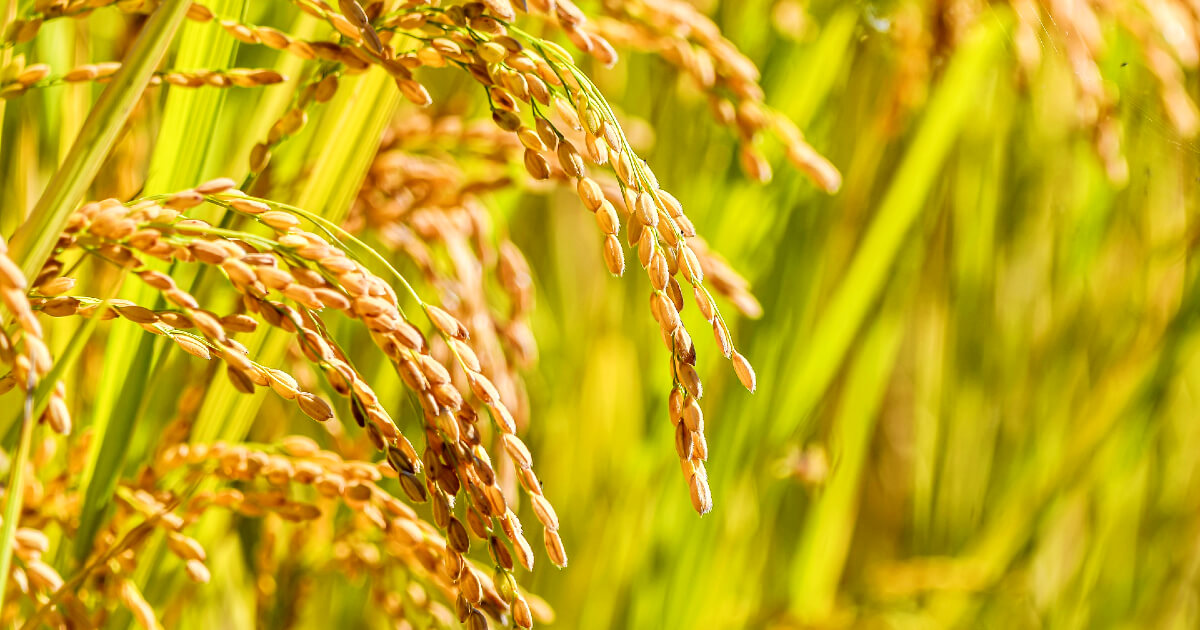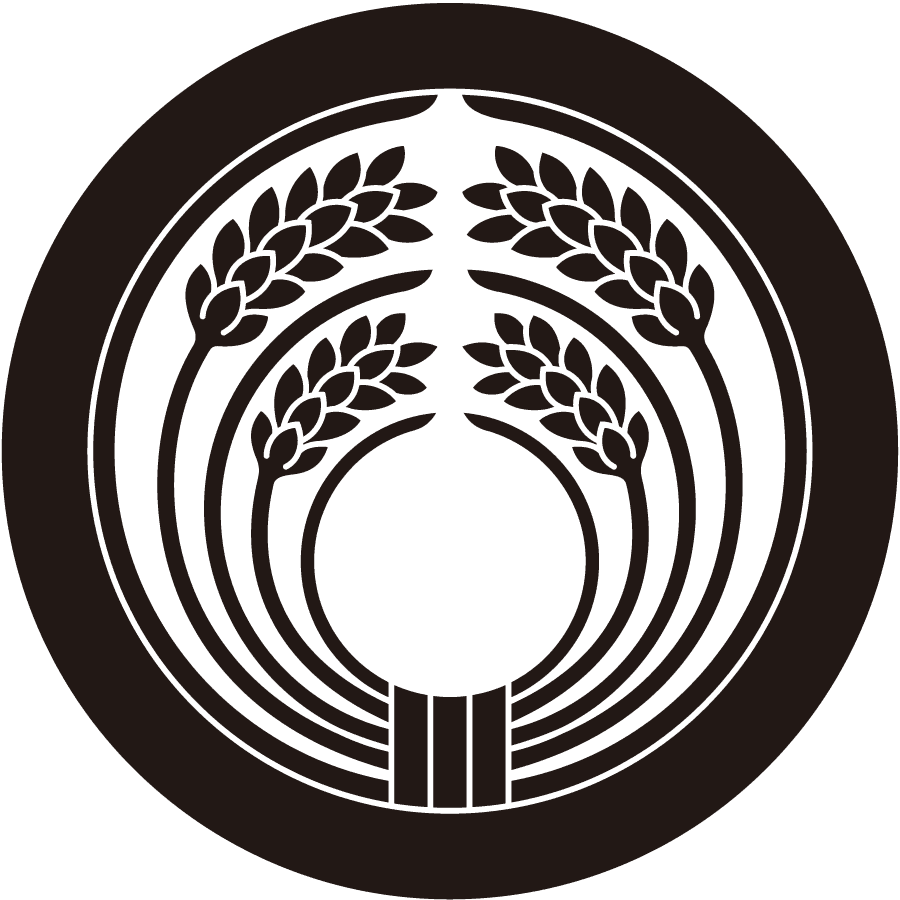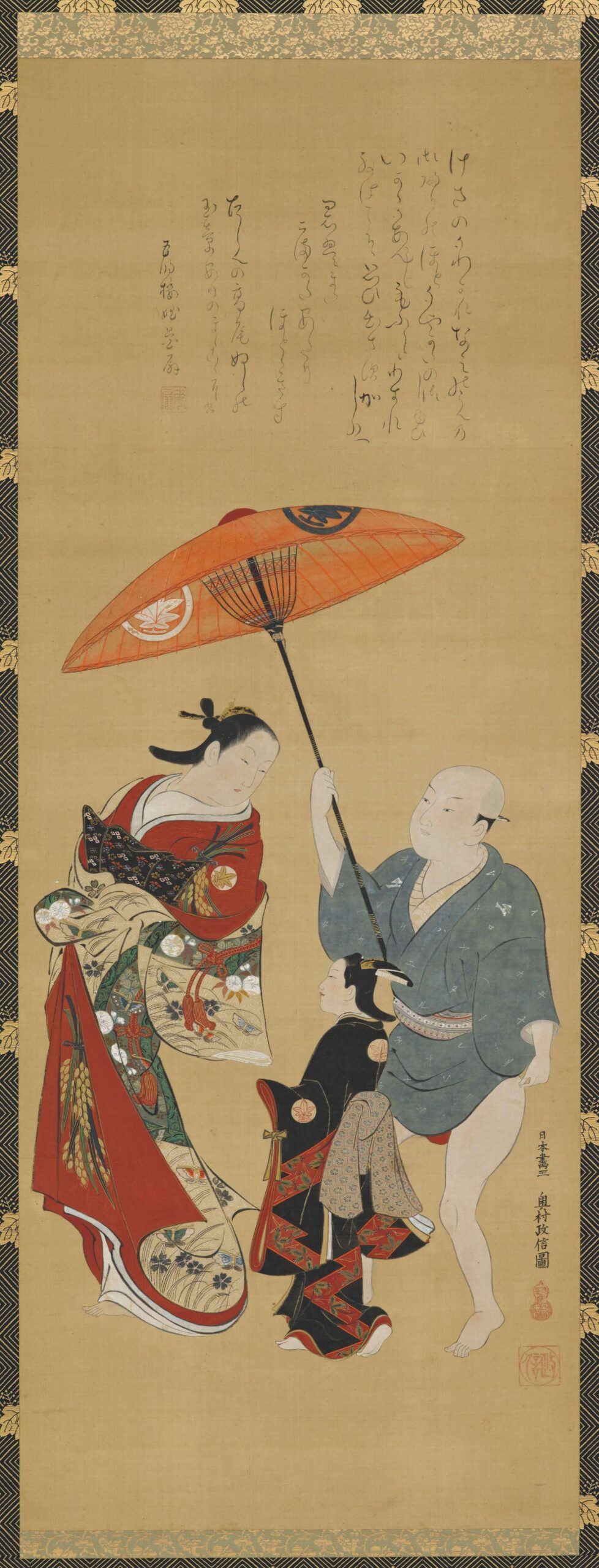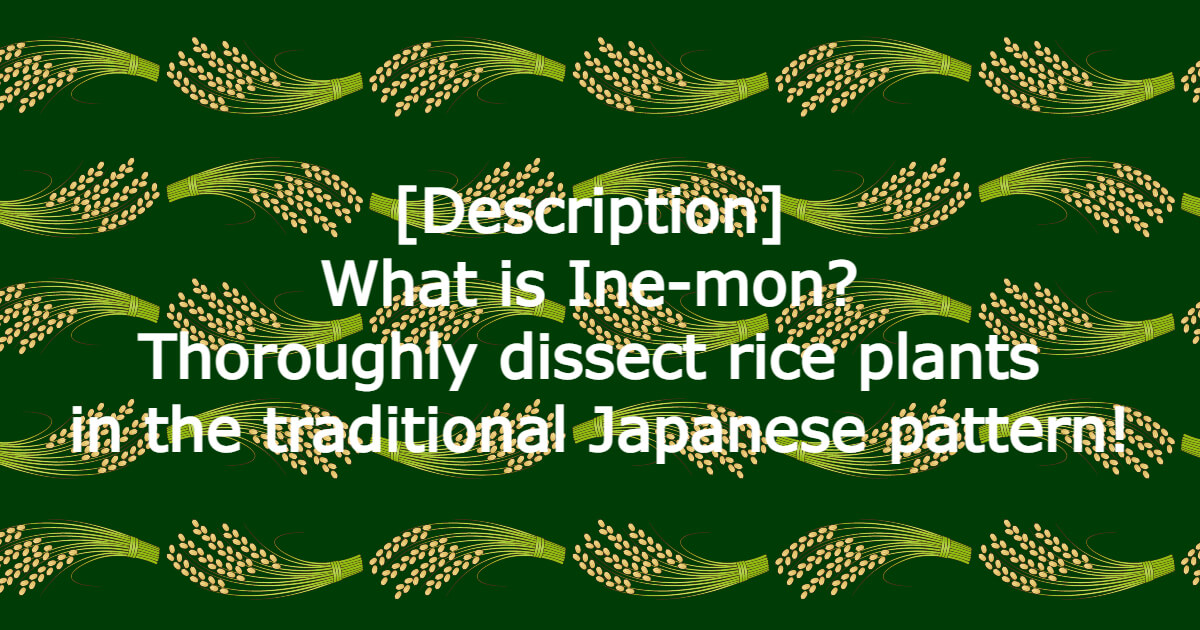It has been a staple food for the Japanese since ancient times, and is called “kakoku(嘉穀)” (meaning “good grain”) among the five grains.
The word “kakoku(嘉穀)” also means “good grain”.
I would like to introduce you to some of these rice grains!
What is Rice Plants (稲/Ine)?
 The rice plants(稲/ine) is an annual crop in the family Poaceae.
The rice plants(稲/ine) is an annual crop in the family Poaceae.
It is believed to have originated in India and Malaysia.
The rice plants(稲/ine) is sown at the end of March, grows before the rainy season, and is harvested in November and December.
There is a theory that a type of the rice plants(稲/ine) called “Japonica” (Japanese type, the rice we eat today) was introduced to Kita-kyushu(北九州) from the Korean peninsula or the Yangtze River in China in the late Jomon period.
In the middle of the Yayoi period, about 2,000 years ago, The rice plants(稲/ine) was cultivated in the northernmost part of Honshu/本州 (near today’s Aomori prefecture/青森).
Hokkaido(北海道) was the latest to start cultivating rice, apparently in the Meiji period (1868-1912).
About Rice Plants Pattern(稲文/Ine Mon)

Family crest: a circle with an embrace of rice
家紋:丸に変り抱き稲(まるにかわりだきいね)
Photo From:家紋のいろは
The rice plants pattern(稲文/ine mon) has not been used as a decoration for dyed textiles or handicrafts for a long time.
Since ancient times, the design of a bundle of rice or a bunch of rice in a round shape has been used on komon (小紋/A type of kimono pattern) to express wishes for fertility and wealth.
The Fushimi Inari Taisha shrine(伏見稲荷大社) in Kyoto(京都) has the rice plants pattern(稲文/ine mon) as its crest (or shrine crest). (See 👇Family crest below).
The design of the Fushimi Inari Taisha shrine(伏見稲荷大社) in Kyoto(京都) is slightly different from that of the company crest (or shrine crest), but it is still the same: the “hugging rice crest”. For your reference ^^.
Family crest: hug rice
家紋:抱き稲(だきいね)
参考:フリー素材 発光大王堂
Design using Rice Plants Pattern(稲文/Ine Mon)

奥村政信(1686-1764)-遊女と禿と従者
Okumura Masanobu (1686-1764) Yujo, understudy (kamuro) and man-servant
Photo From:National Museum of Asian Art
I was wondering if it was millet or rice plants…. I think it’s rice plants!
If I’m wrong, please let me know.
この投稿をInstagramで見る
Photo From:instagram@bonbonkeitan
この投稿をInstagramで見る
Photo From:instagram@bonbonkeitan
この投稿をInstagramで見る
Photo From:instagram@bonbonkeitan





コメント